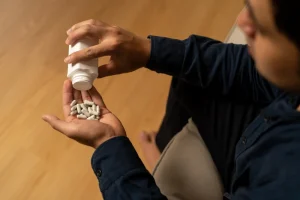
Cognitive-behavioral techniques focus on identifying and changing negative thought patterns and behaviors. Journaling is about getting in touch with your experiences through writing, while expressive writing is about processing emotions. The writing exercise allows group members to remember and describe their most meaningful memories. When coping with stressors, group members focus on building confidence and reducing troublesome stress without judging themselves for their feelings. Whether you meet once a day or several times a week, expressive writing as a group will surely boost everybody’s mood.
Discover Therapy Worksheets to Help Your Clients and Streamline Your Practice

Games like “Two Truths and a Lie” or “Group Jenga” provide opportunities for individuals to share experiences, build trust, and receive encouragement from their peers. Turn traditional psychoeducation sessions into interactive workshops where participants engage in discussions, role-plays, and group exercises. This approach allows individuals to apply newfound knowledge directly to their lives, fostering deeper understanding and personal growth. Through music therapy, participants can find solace and comfort in the melodies and rhythms.

Art Therapy: Unleashing Creativity for Healing
Addiction Cope techniques can further bolster their resilience and determination along this transformative journey. By embracing mindfulness as a collective practice, individuals can support each other on the path to recovery with renewed clarity and strength. In essence, substance abuse https://ecosoberhouse.com/article/alcoholics-heart-problems-cardiomyopathy/ group activities for adults serve as more than just therapeutic interventions; they become moments of connection, growth, and celebration. Through these shared experiences, individuals in recovery find strength, resilience, and a renewed sense of hope on their journey towards healing.
Trust-Building Exercises
- These groups support recovery by providing a judgment-free environment where members can show acceptance and offer validation.
- Relapse rates for drug and alcohol use are comparable to those of other chronic diseases, such as hypertension and diabetes.
- CARF International accreditation demonstrates a program’s quality, transparency, and commitment to the satisfaction of the persons served.
- Some people find it hard to say no to substance use in social gatherings or parties.
After a major blow-up (and once everyone is calm), it can be beneficial for the group to process it with the person who escalated. Group members can empathize/relate, share their observations and/or how it made them feel, and offer feedback. Once their what are some ideas for substance abuse group activities? original paper is returned to them, they can read and share with the group. This can lead to a powerful discussion about image, reputation, feeling fake, etc. Group therapy is an evidence-based treatment for substance use and mental disorders.